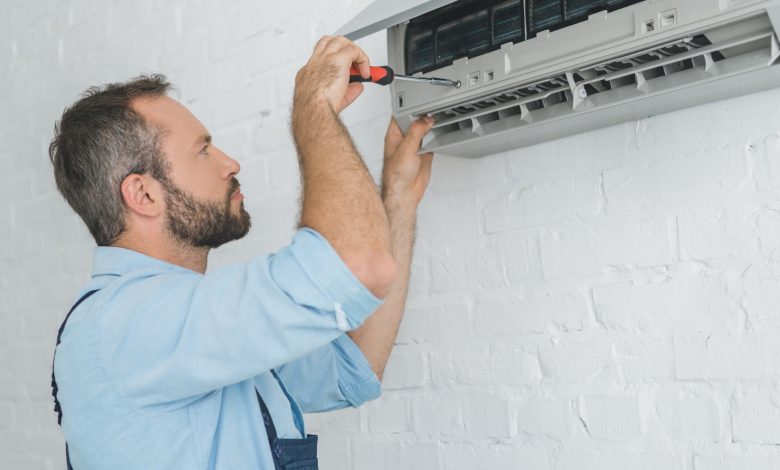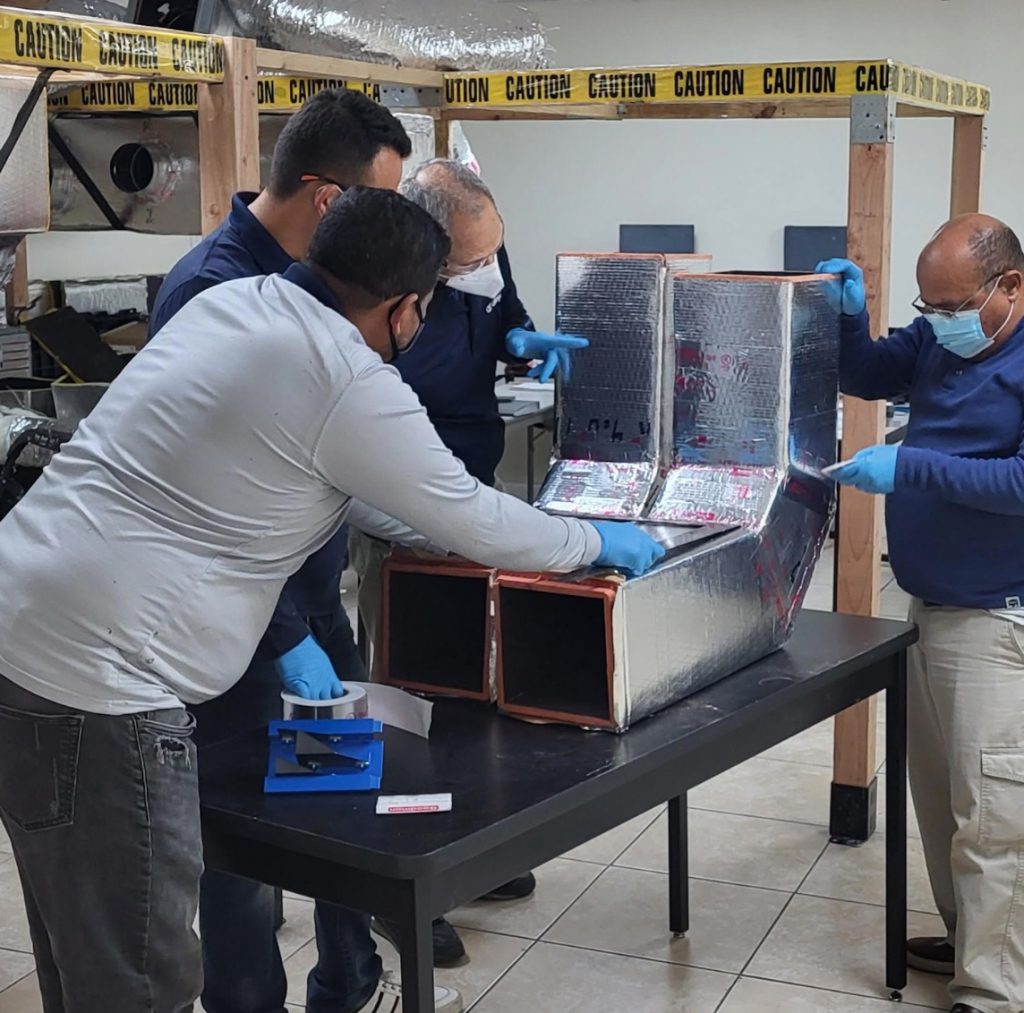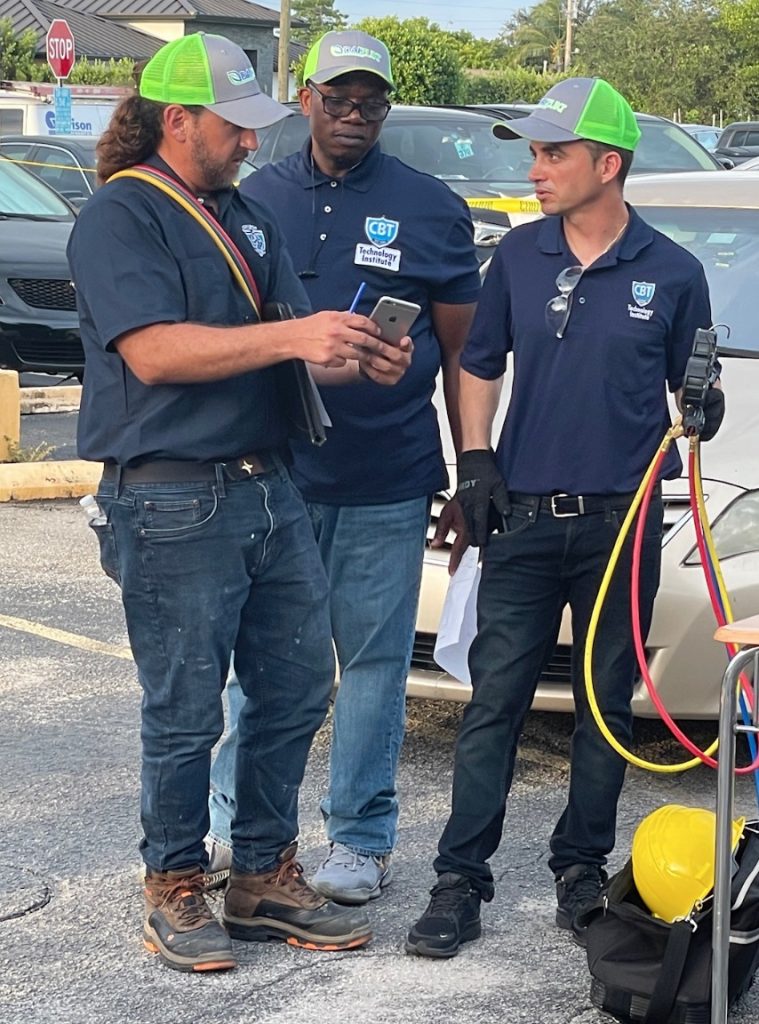
How Long is Trade School for HVAC Technicians?
A Look Into HVAC Trade School Programs
Heating, ventilation, and air conditioning (HVAC) technicians are in high demand, with the US Bureau of Labor Statistics projecting employment in the field to grow 5% from 2021 to 2031, which is as fast as the average for all occupations combined. This growth is driven by increasing demand for energy-efficient heating and cooling systems and the need to maintain and repair existing systems.
If you’re interested in a career as an HVAC technician, you may be wondering how long it takes to complete trade school. The answer depends on a few factors, including your chosen program and prior experience.
Generally, HVAC trade school programs take anywhere from 6 months to 3 years to complete. Certificate programs are typically the shortest, while associate degree programs and apprenticeships can take longer.
This blog post will delve into the intricacies of HVAC trade school programs, their duration, and the factors that can influence the length of your educational journey toward becoming a skilled HVAC technician.
Understanding HVAC Trade School Programs
HVAC systems are crucial in maintaining comfortable indoor environments in homes, offices, and other buildings. As the demand for well-trained HVAC technicians continues to rise, many individuals turn to HVAC trade school programs to enter the field.
Trade schools, also known as technical or vocational schools, offer specialized training programs designed to prepare individuals for specific careers in a shorter time than traditional four-year college degrees.
HVAC trade school programs provide students with the knowledge and practical skills necessary to excel in heating, ventilation, air conditioning, and refrigeration.

Types of HVAC Training Programs and Their Duration
The duration of HVAC trade school programs can vary depending on several factors, including the type of program, the level of certification or degree pursued, and whether the student attends full-time or part-time.
- Here is a breakdown of the different types of HVAC training programs available and how long they typically take:
- Certificate programs: Certificate programs in HVAC technology typically take six months to one year to complete. These programs provide students with the basic skills and knowledge they need to work as entry-level HVAC technicians. A Miami HVAC certification program offers hands-on instruction to teach you how to understand, develop, repair, and maintain various HVAC equipment, expanding your employment opportunities and providing a basis for pursuing an associate degree in A/C Refrigeration Technology.
- AS programs: Associate of Science (AS) programs in HVAC technology typically take two years to complete. These programs offer a more comprehensive education than certificate programs, and they prepare students for more advanced positions in the field. A 2-year degree program in HVAC technology will provide you with the skills and experience necessary to gain mid-level employment as an HVAC technician through high-quality classroom instruction and hands-on training, preparing you to work in various settings.
- Apprenticeships: HVAC Apprenticeships are a great way to learn HVAC skills while earning a paycheck. Apprenticeships typically last four years and combine classroom training with on-the-job experience.
No matter which type of program you choose, it’s important to check that it is accredited by a recognized organization such as the Accrediting Council for Independent Colleges and Schools (ACICS). Accreditation ensures that the program meets high standards and you will receive a valuable education.
Other Factors Affecting How Long it Takes to Become an HVAC Tech
In addition to the program’s length, a few other factors can affect how long it takes to become an HVAC technician, including:
- Prior experience: If you have any experience working with HVAC systems, it will likely shorten the time you need to spend in school.
- Aptitude: If you have a natural talent for mechanical work and troubleshooting, you may be able to learn the skills you need to be an HVAC technician more quickly.
- Commitment: If you are truly committed to a career in HVAC, you will be more likely to succeed and move quickly through the training process.
How to Choose the Right HVAC Trade School for You
If you’re interested in becoming an HVAC technician, you’ll want to research and choose a program that fits your individual needs.

Here are some tips to get you started:
- Consider the program’s accreditation: As previously noted, you should choose a program accredited by a recognized organization such as ACICS to ensure it meets the highest quality standards.
- Look for a program that offers hands-on training: HVAC technicians must use their hands to work on heating and cooling systems. Choose a program that provides plenty of hands-on training to get the experience you need to succeed in the field.
- Find an affordable program: HVAC trade school can be expensive, so it’s important to find a program that fits your budget. Many scholarships and financial aid opportunities are available, so be sure to research and see if you qualify for any assistance.
- Talk to current students and graduates: One of the best ways to get a feel for a program is to talk to current students and graduates. Ask them about their experiences in the program and what they think of the school.
By following these tips, you can find an HVAC trade school program that will help you succeed in your career.
CBT Technology Institute, a premier HVAC school in Miami, Florida, offers an 8-month HVAC technician program where you can quickly gain the HVAC training necessary to begin working in an entry-level position in the HVAC industry.
CBTs Miami HVAC school also offers a 20-month Associates Degree in HVAC in Miami. This program will teach you the basics of installing, repairing, and maintaining a variety of equipment in various settings. You will also complete several HVAC training courses dedicated to teaching you the concepts of green technologies, sustainable HVAC practices, and alternative energy.
Our hands-on training will allow you to discover which area best suits your abilities.
As you take the first steps toward your HVAC career, remember that investing time and effort into your education will yield invaluable rewards. A Miami HVAC trade school journey equips you with the skills needed for a successful career.
Contact CBT Technology Institute’s HVAC school in Miami to embark on this transformative journey and secure a bright future in a high-demand industry.
